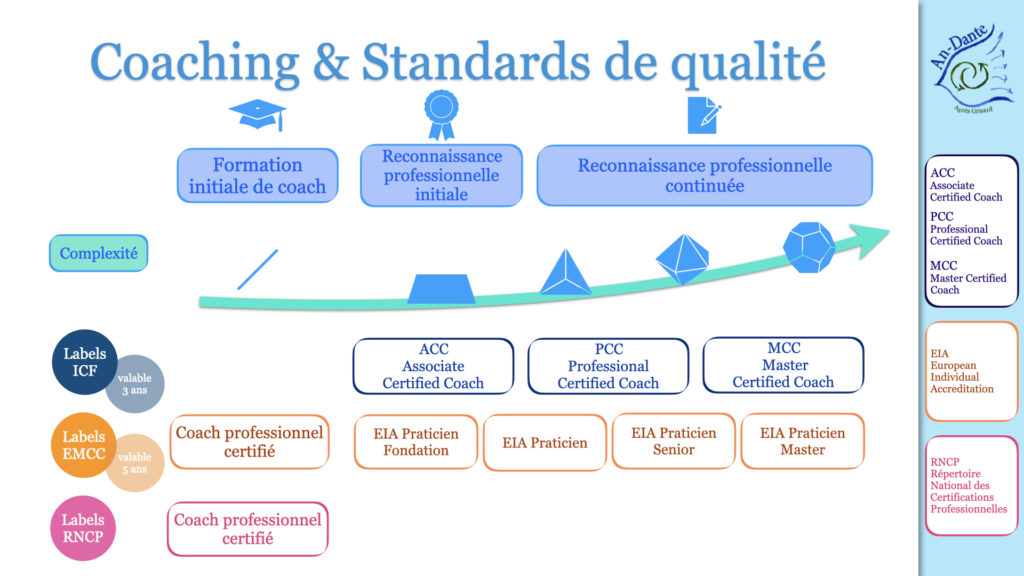What are the rules of the game of the professional coaching profession?
Professional coaching is a self-regulating profession.
Advantage : it is responsible for its own benchmarks and its dynamism and evolutions are correlated with the market.
Disadvantage : the repositories are multiple and it can be difficult to navigate.
The purpose of this article is to clarify the terms used and what they correspond to.
It clarifies the two main references of the professional coaching profession: that of the International Coach Federation ICF and that of the European Mentoring and Coaching Council EMCC.
The ICF and EMCC Associations in numbers
EMCC was founded in 1992.
It has in France 22 foundation practitioners, 115 practitioners, 45 seniors, 10 master’s degrees.
And worldwide 190 foundation, 825 practitioner, 979 senior, 90 master.
ICF was founded in 1995.
It has in France 334 ACC coaches, 403 PCC coaches, 49 MCC coaches.
And worldwide 14,770 ACC coaches, 14,536 PCC coaches, 1,565 MCC coaches.
NB: these figures are those recorded on the day of writing the article on the directories of the two federations.
Common objectives
These two associations work together to develop the professionalization of coaches, via quality training -independent, delivered by organizations whose mission it is-, and processes of labeling the maturities of coaches, through their professional development.
For this, each association has its own criteria and levels required.
However, the logic is the same:
- support professional development, through coach training and supervision
- give explicit quality benchmarks for coaching buyers : skills are observed in the field, by qualified people independent of training schools
Be careful, the RNCP, a system of qualification of training on french territory only blurs the understanding, because it uses terms identical to international standards, but with different contents, such as that of “professional coach” or “certification” -see the diagram-.
The indicators of professional development or “stages” are 3 at ICF, and 4 at EMCC.
Certificates and accreditations are renewable for 3 years for ICF and 5 years for EMCC.
These elements will be detailed in future articles:
Certification, accreditation, what are we talking about?
The skills of coaches according to ICF and EMCC

The challenges of the professional coaching profession
Today the challenges of the coaching profession are:
- to support the professionalization of coaches and
- to develop the professionalization of supervisors.
Supervisory competency frameworks exist, and training organizations are actively taking them up.